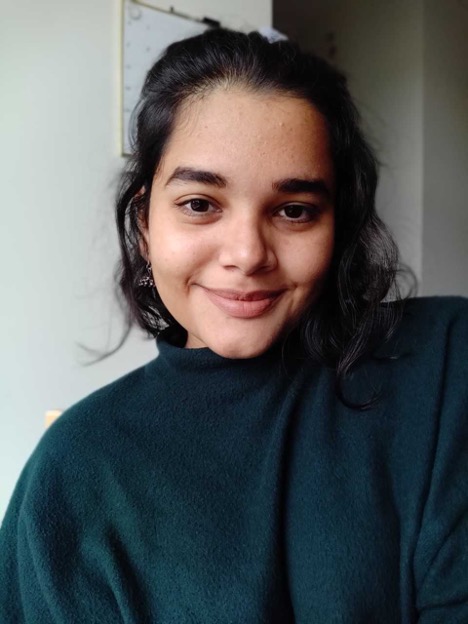Anupriya Dasgupta is a recent graduate in honours Sociology from UBC. Her undergraduate thesis, under the supervision of Dr. Amy Hanser, explores the theoretical dimensions of the postcolonial Indian State that perpetuate systemic and cultural violence against historically vulnerable minorities. Through discourse analysis of the recent anti-CAA/NRC protests in India, she examines whether public spaces enable, restrict or predict the outcomes of political protest.
We spoke to Dasgupta about her research project.


Recent graduate Honours Sociology student Anupriya Dasgupta
What was your project about? What are the main take-aways from your work?
In 2019, the Indian government passed a controversial bill in parliament called the Citizenship Amendment Act (CAA), which, when paired with a national census (National Register of Citizens or NRC), effectively disenfranchises historically vulnerable religious minorities, in particular, Indian Muslims. The right-wing ruling party uses the Act to enact violence and statelessness against minorities to further their aim of creating a Hindu supremacist nation. My project sought to advance the theoretical contributions of Frantz Fanon on the postcolonial State as well as Edward Said’s work on Orientalism and modern secularism by applying them to understand the consequences of the anti-CAA/NRC protests that took place in Delhi in 2019. My paper argues that the dominant ideologies of the freshly independent postcolonial State and the modes of legitimate domination based on Nehruvian secularism and Gandhian non-violence play a major role in the disenfranchisement of India’s vulnerable populations. I connect current realities to colonial legacies, which have shaped the terrain for fascist ideologies to gain ground at present.
How did you get interested in this topic?
In the winter of 2019, I attended some of the protests in Delhi and noticed a remarkable diverse demographic at protest sight. I also observed that different sites had different outcomes. For example, the more established and accessible protest sites were met with little repression while the ‘Othered’ sites –occupied mainly by visibly marginalized populations –were met with police brutality and hate. This prompted me to explore how political actors inform themselves based on the sites they occupied and what types of narratives are concretized, enabled or restricted by public spaces.
“The more established and accessible protest sites were met with little repression while the ‘Othered’ sites –occupied mainly by visibly marginalized populations –were met with police brutality and hate.”
What was the most difficult part of this learning journey? What was most satisfying?
I had great ambitions for this project, mainly because of how complex the historical and political contexts of my work are. However, I struggled to fit these ambitions into the limitations of an undergraduate honours thesis. To synthesise effectively, having grown up witnessing these politics first-hand, and to even know what evidence to pick out of the abundance of data available was often challenging and disorienting. Furthermore, having to keep myself immersed in these issues from half a world away was difficult. However, I found joy in writing about subaltern resistance and the promise and power that emerged from their actions.
What skills did you develop or strengthen as a result of this project?
The project tested my confidence and dedication to work with a topic for over eight months. Being forced to synthesise and be intentional about what information I would include/exclude taught me a great deal about how to be an effective writer and communicator. I am also appreciative of being able to practice media discourse analysis, exploring historical archives and putting seminal theorists in conversation with each other.
What was your experience working with Sociology faculty on this project?
My supervisor for this project was Dr. Amy Hanser, whose interest and support throughout the year were a huge motivator for me. Dr. Hanser was the one who encouraged my relatively unconventional approach, and she provided a lot of valuable and helpful feedback throughout both my moments of doubt and of inspiration. I was also lucky to learn from Dr. Oral Robinson and Dr. Kerry Greer who led the honours seminars weekly. Both their guidance and insights regarding the research process have been learning highlights in my degree.


